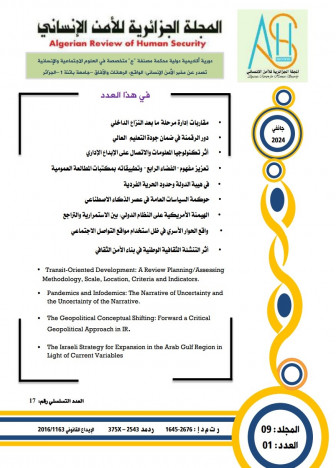Geographical Disparities In Reproductive Health In Algeria An In-depth Analysis Based On Multi-indicator Cluster Survey Data (mics6-2019).
DOI:
https://doi.org/10.59791/arhs.v9i1.3792Keywords:
:Geographical Disparities, Reproductive Health, Fertility, Healthcare, Structural Equation ModelingAbstract
In this analytical study, we shed light and investigate on the extent of the geographical disparities in Algeria and their impact on reproductive health. These disparities have led to differences in the level of access to reproductive healthcare, with social, economic, and cultural indicators playing a significant role in this variation. The study aimed to identify the key factors and indicators contributing to disparities in access to reproductive healthcare. To accomplish this, we utilized structural equation modeling as a robust statistical method, employing the SPSS and AMOS statistical software based on the sixth Multi-Indicator Cluster Survey (MICS-6--2019) dataset. The study concluded that the geographic diversity and differences in regions in Algeria lead to variations in reproductive healthcare access, influenced by social and economic factors. There were statistically significant differences in educational and cultural levels of individuals, as well as an association between fertility rates and the impact of the residential area. Keywords: Geographical Disparities, Reproductive Health, Fertility, Healthcare, Structural Equation Modeling





